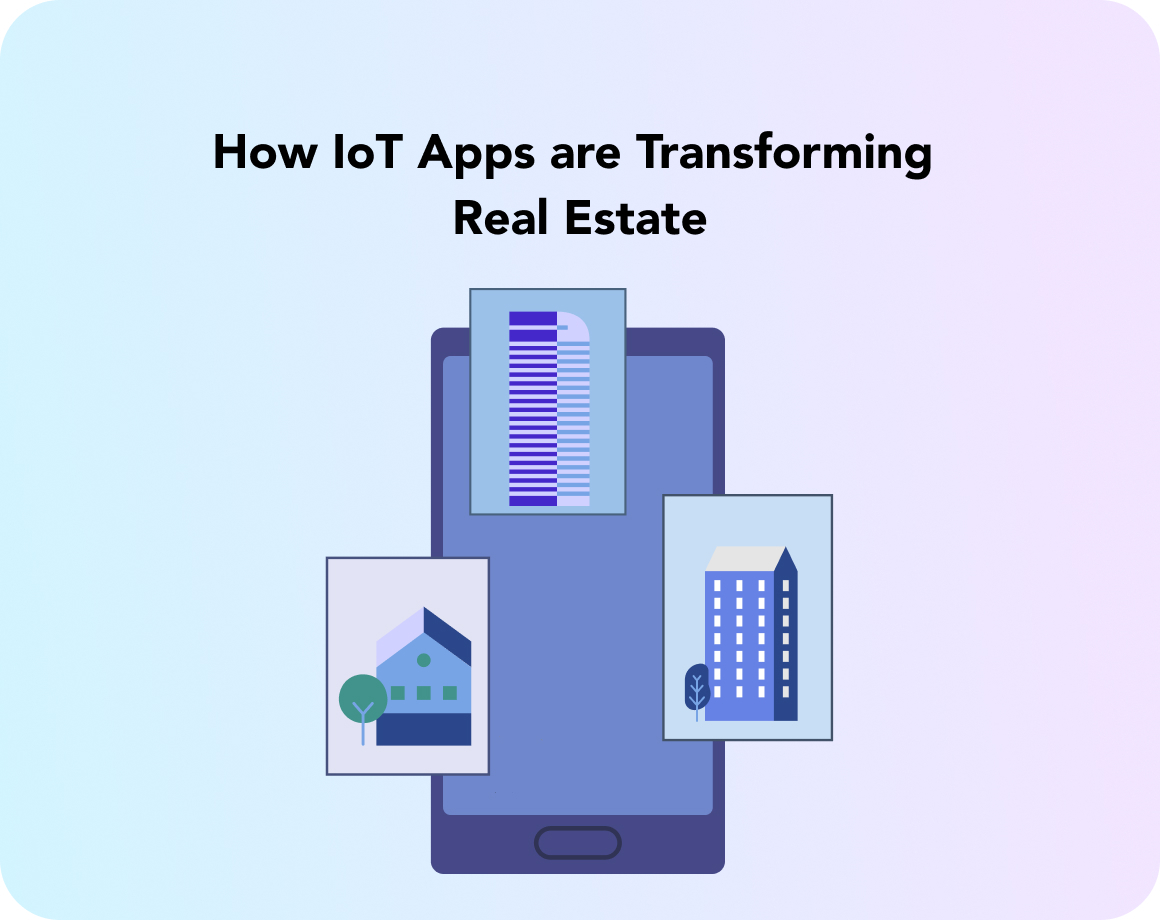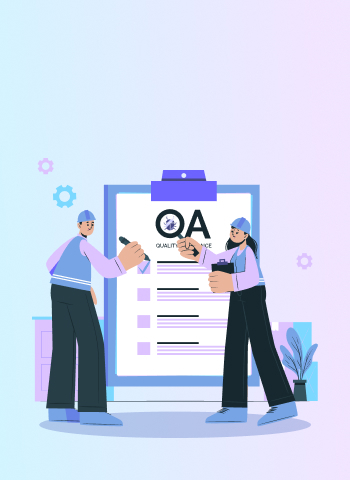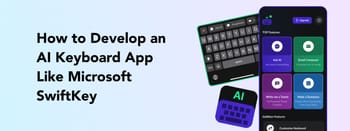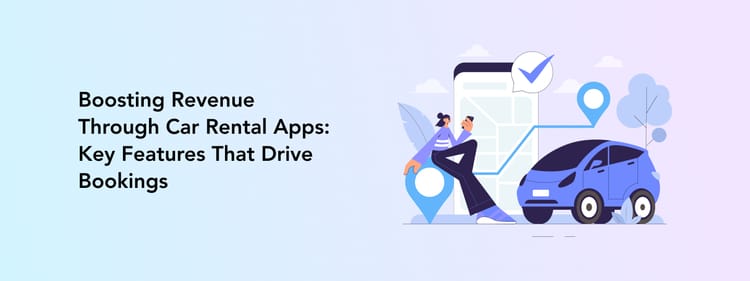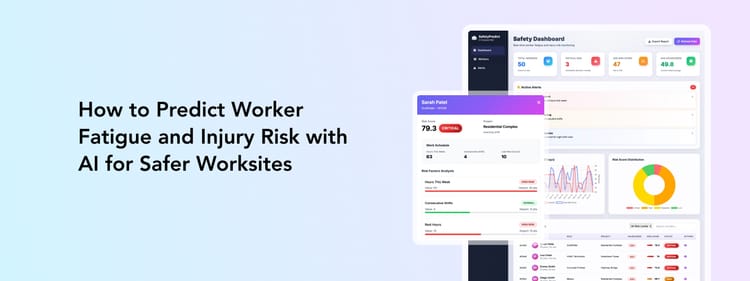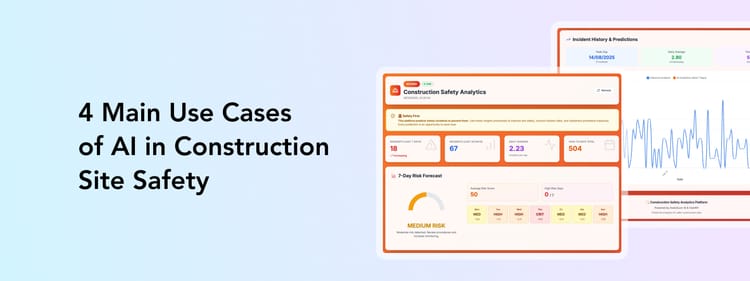Proptech is an umbrella term for all the technology aiding the real estate industry. Among the most beneficial and commonly used proptech is the Internet of Things — a network of interconnected physical devices and sensors for exchanging data.
Proptech is indeed the industry benefiting from IoT the most: most have heard about smart home technology, and the number of IoT-based solutions in real estate is only growing year by year.
An IoT real estate app turns a set of sensors, such as temperature and humidity, into an all-in-one data hub with simple visualizations and full control over the housing unit.
This article explains the main benefits of IoT technology for real estate and the most common IoT applications. It also showcases an example of a real-state IoT app developed by Perpetio.
Top Benefits of IoT in Real Estate Apps
The IoT sensors provide useful insights about a property object. An Internet of Things app can come in handy for a number of property types, including
- Housing units for homeowners or building managers
- Multifamily buildings
- Rental units for building owners or investors
- Commercial rental units for owners, renters, or investors
- Office buildings
- Industrial units
- Storage units
No matter the property type, an IoT app presents a number of benefits, equally important to private and commercial tenants, owners, and managers.
Cost-effectiveness
Saving money spent on electricity and water bills, on-site security staff, and emergency repairs is the main advantage motivating real estate companies to invest in IoT products.
An Internet of Things technology for real estate helps save money in several ways:
- Resource optimization: IoT electricity, water, and gas sensors shed light on how much of a resource is spent in a building and which utilities are taking up the most. For example, a building manager or owner can find out that a dishwasher in an apartment is consuming more electricity and water than they assumed and decide to use it less often for money saving.
- On-site security: Hiring security personnel tends to be more costly than installing cameras connected to an IoT app, especially in a bigger space like a commercial rental or a storage unit. An AI-based algorithm can detect abnormal activity and send notifications to a security company and the building manager.
- Emergency repairs: Fixing small issues is always more cost-effective than dealing with bigger damage. Such Internet of Things sensors as humidity, moisture, and temperature can point to maintenance required or minor problems to be fixed, like leaky pipes or malfunctioning HVAC (heating, ventilation, air conditioning) systems.
In the long run, implementing an IoT app in real estate allows for saving budget for any type of property. Bettina Tratz-Ryan, research vice president at Gartner, says that IoT can help reduce the cost of energy, spatial management, and building maintenance by up to 30 percent, especially in large sites, such as industrial zones, offices, or shopping malls.
Better on-site security
Improved on-site security is a significant benefit of implementing IoT technology in real estate management. Property owners can place cameras, motion sensors, and other IoT devices throughout their properties to monitor activity remotely in real time.
These devices can detect any suspicious behavior or unauthorized access and send instant notifications to the property owner or security personnel, allowing for intervention. What’s more, weather sensors provide advance warnings of unusual and dangerous weather events, like storms or tornados.
For example, Perpetio developed an IoT app for a real estate management company, Alterra Group, which allows clients of rented commercial spaces to enhance on-site security. Through the app, users can create permanent or temporary access slips, granting specific individuals access to the premises for a designated period.
Moreover, users can customize access permissions for vehicles, ensuring that only authorized vehicles can enter the premises. This feature not only improves the safety and security of the space but also enhances operational efficiency by providing business owners with real-time insights into who has access to their property at any given time.
Eco-friendliness
Embracing IoT technology in real estate management promotes eco-friendliness by encouraging more responsible consumption of resources such as electricity, water, and other utilities. Through IoT apps, managers, owners, and tenants gain valuable insights into the energy and resource consumption of every device within the property. By monitoring usage patterns and identifying areas of inefficiency, they can implement strategies to optimize resource utilization and minimize wastage.
For instance, IoT sensors can track the energy consumption of individual appliances and devices, allowing users to identify energy-intensive equipment and adjust their usage accordingly. For example, often enough, air conditioning and heating systems take more electricity than tenants assume.
Additionally, real-time data provided by IoT apps lets house managers and residents detect leaks, drips, or other forms of resource wastage promptly, facilitating timely repairs.
Let us explore the smart meter application in our recent IoT mobile app case. Our team's main goal was to convert raw energy consumption data from various devices into user-friendly, visually appealing reports. Our team developed a comprehensive graph system that clearly represents energy consumption trends over various time intervals, including daily, weekly, monthly, and yearly views. Moreover, users can easily access detailed insights into individual devices' energy usage, presented in kilowatt-hours (kW/h) and percentage formats, enabling them to make informed decisions about their energy consumption habits.
Simpler unit management
Implementing IoT technology in real estate management simplifies unit management by streamlining communication, reducing administrative overhead, and enhancing operational efficiency. For instance, Perpetio's IoT-enabled app for Alterra Group facilitates simpler unit management through features such as requests for the managing company and rental unit news updates.
With the app, businesses renting commercial spaces can effortlessly communicate maintenance or repair requests to the management team. Gone are the days of lengthy email chains or phone calls; instead, clients can submit requests directly through the app, covering anything from fixing a running tap to installing additional outlets or setting up recycling bins. This streamlined process not only saves time but also ensures that issues are addressed promptly, contributing to overall tenant satisfaction.
Moreover, the app provides rental unit news updates, keeping clients informed about important developments within the property. Whether it's renovations in progress, upcoming maintenance activities, or any other pertinent information, clients have access to real-time updates directly on their smartphones.
One popular real estate IoT solution for security is smart lock technology. With smart locks integrated into the IoT ecosystem, property owners can remotely manage access to units, granting or revoking access as needed without the need for physical keys. Tenants benefit from keyless entry and the ability to grant temporary access to visitors or service providers, enhancing overall security and flexibility.
Risk mitigation
IoT sensors serve as early warning systems, alerting property owners and managers to potential risks such as flooding, fires, or other emergencies before they escalate.
For example, IoT water sensors installed throughout a property can detect leaks or abnormal water levels, signaling the possibility of flooding. A building manager or owner then gets a push notification from an app and can take measures right away, even if there is no one in the building.
Employee and occupant health
IoT sensors can track environmental factors like temperature, air quality, and movement patterns, providing data to optimize indoor conditions for occupant health and productivity. By analyzing data collected from building management systems (BMS) and motion sensors, real estate companies can determine optimal ventilation and temperature settings tailored to specific needs. Adjustments to HVAC and lighting systems based on this data contribute to a healthier indoor environment, supporting occupant well-being and performance.
Main Applications of the Internet of Things Apps in Real Estate
Depending on the property type and purpose, like housing or commercial space, the intended use of an IoT app might vary. Let us share the main application scenarios of the Internet of Things technology in the real estate industry.
Remote unit control
Remote unit control is particularly relevant for commercial spaces like shops, offices, and storage rooms. According to PwC's Real Estate Benchmarking Survey, 73 percent of executives already prioritize IoT on the business agenda, anticipating significant changes in customer interaction.
Managers or owners can utilize smart lock technology to grant visitors permissions, monitor the unit via cameras, and regulate electricity usage. Smart metering and building automation offer various applications to reduce costs and enhance labor productivity. Full coverage with WLAN or Bluetooth within buildings is essential for optimal functionality.
For example, in an IoT app developed by Perpetio for Alterra Group, users can remotely control access permissions for commercial units, monitor security cameras, and optimize energy usage. Plus, users can view the available parking spaces on the site to plan their visit.
Smart HVAC and smart home
Smart HVAC (heating, ventilation, air conditioning) and home automation systems offer residential property owners and tenants greater control over various aspects of their home environment. From managing lights and appliances to regulating air conditioning and heating systems, these technologies provide unparalleled convenience and energy efficiency.
One of the primary benefits of smart HVAC and home automation is the ability to control devices remotely. Whether homeowners are at work or traveling, they can use their smartphones or other connected devices to adjust thermostat settings, turn lights on or off, and even monitor security cameras. This ensures that the home is comfortable and secure, regardless of the residents’ location.
For example, Perpetio recently developed a smart HVAC app that serves as an all-in-one hub for smart home system owners. The app categorizes smart home devices by room, such as the living room or kitchen, with each room having its own screen displaying basic parameters and essential switches. Additionally, users can access separate screens for individual devices, providing more detailed controls and customization options.
Surveillance
Surveillance systems powered by IoT technology play a crucial role in enhancing security and safety in both residential and commercial settings. These systems use a combination of cameras, motion detectors, temperature sensors, and water sensors to monitor activities and detect potential threats or hazards in real-time.
In the realm of surveillance, Perpetio has developed a comprehensive app designed for remote monitoring and surveillance. This security application integrates real-time camera data from multiple facilities, including homes, offices, and daycares, each equipped with cameras spanning several rooms.
To ensure a seamless monitoring experience, our design team prioritized intuitive navigation and user-friendly interface design. The home screen features a list of facilities, allowing users to easily select a location of interest. Upon selecting a facility, users can access an overview of the rooms within that location, enabling them to quickly navigate to specific areas of concern.
Virtual property tours
By integrating IoT devices such as cameras, motion detectors, and environmental sensors into properties, real estate companies can provide interactive 3D virtual tours that offer a comprehensive understanding of the space's features and amenities.
For clients located in different cities or countries, these virtual tours serve as invaluable tools for remotely exploring properties and making informed decisions about rental or purchase options. Unlike traditional static images or videos, IoT-enabled virtual tours allow users to interactively navigate through properties, zooming in on specific details and gaining a deeper understanding of the layout and functionality.
The integration of IoT devices enhances the virtual tour experience by providing real-time data on environmental conditions such as temperature, humidity, and air quality. This information helps clients assess the comfort and livability of a space, allowing them to envision themselves living or working there more accurately.
Predictive maintenance
According to a Johnson Controls survey of the company’s Building Efficiency Panel, 70 percent of respondents believe that the ability to predict and diagnose problems and provide or propose solutions will be a “game changer”.
Predictive maintenance powered by IoT involves addressing repair and maintenance concerns before they escalate. Through continuous monitoring and predictive capabilities offered by IoT-enabled buildings, managers can detect potential issues and take corrective action even before tenants become aware of them.
In a commercial building equipped with IoT sensors, predictive maintenance ensures efficient operation of systems like HVAC. For instance, if an air conditioning unit's efficiency drops due to a clogged filter, IoT sensors detect the issue early.
Alterra: Perpetio’s Real Estate IoT App Case
Alterra Group teamed up with Perpetio for a mobile app development project that demanded delivery within a tight timeframe. Perpetio presented the client with a cross-platform Flutter app and a web admin panel. The app runs seamlessly on iOS and Android, giving users of any smartphone the possibility to manage their commercial rentals with a few taps.
Right after the testing by Perpetio’s quality assurance specialist, the app became available on its first commercial rental unit. The first users can view all the news about the unit right in the app. They can also leave renovation and fixing requests to the property manager and get their application processed online.
What’s more, users can check how many cars are parked on the lot and when the employees’ cars enter and exit the parking lot. This feature allows for better work schedule planning according to parking space availability.
Admins, such as rental company representatives, can access the web portal. The web admin panel is a hub for the rental company to review client requests, add information about the unit, check the utility meters’ readings, and more.
Consider Perpetio Your Trusted Partner
Consider Perpetio your trusted partner in finding the best use of IoT for real estate industry stakeholders, whether tenants or development companies. IoT brings numerous benefits, from predictive maintenance to enhanced energy efficiency.
However, IoT applications are more complex than regular mobile apps due to their layered architecture. That's why you need a team of professionals experienced in developing IoT mobile apps like Perpetio. Let us help you find the perfect match of a feature set to enjoy the full potential of IoT for your real estate projects.
Contact us today to discuss how we can help you in IoT app development.
